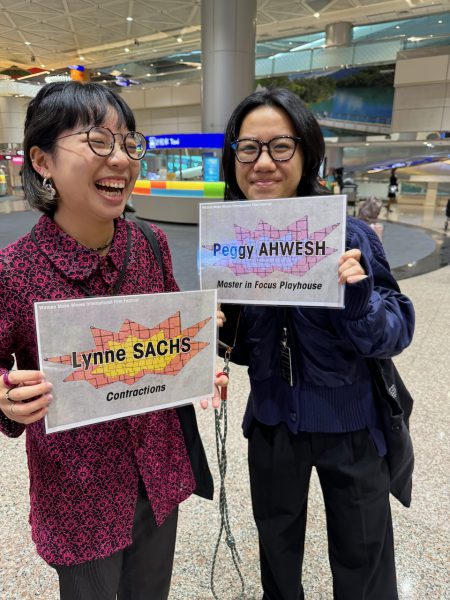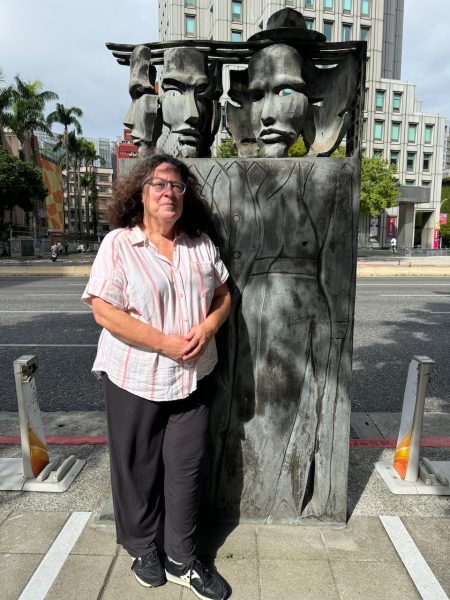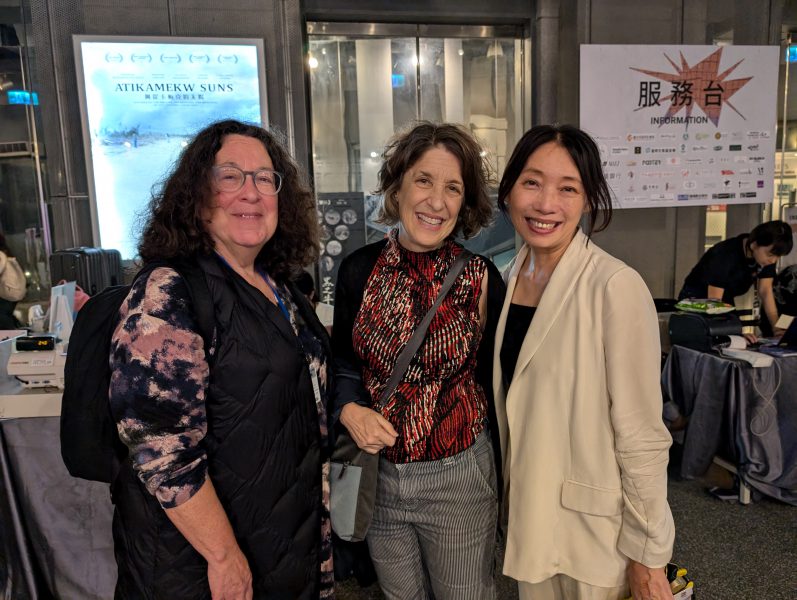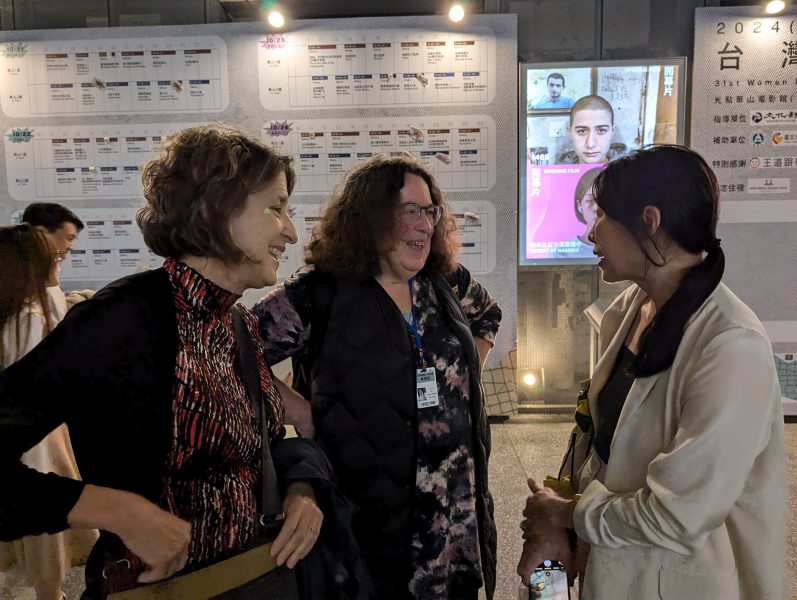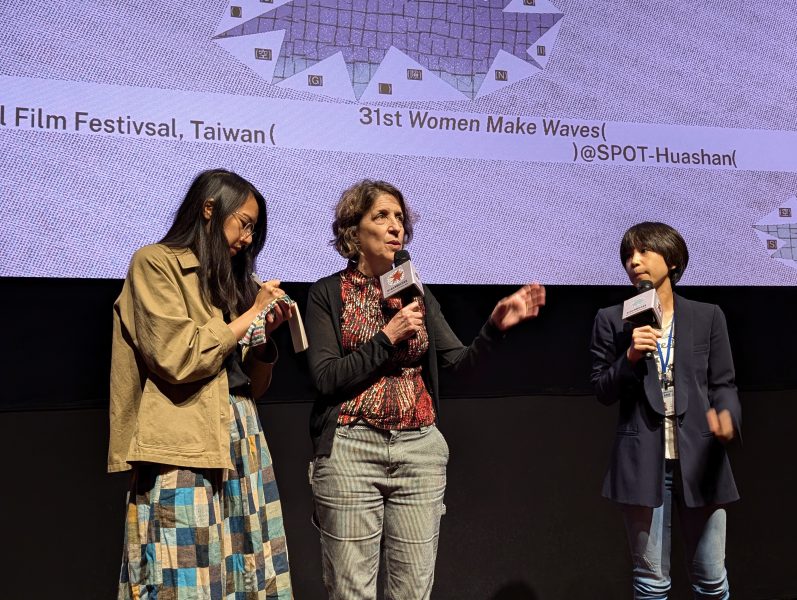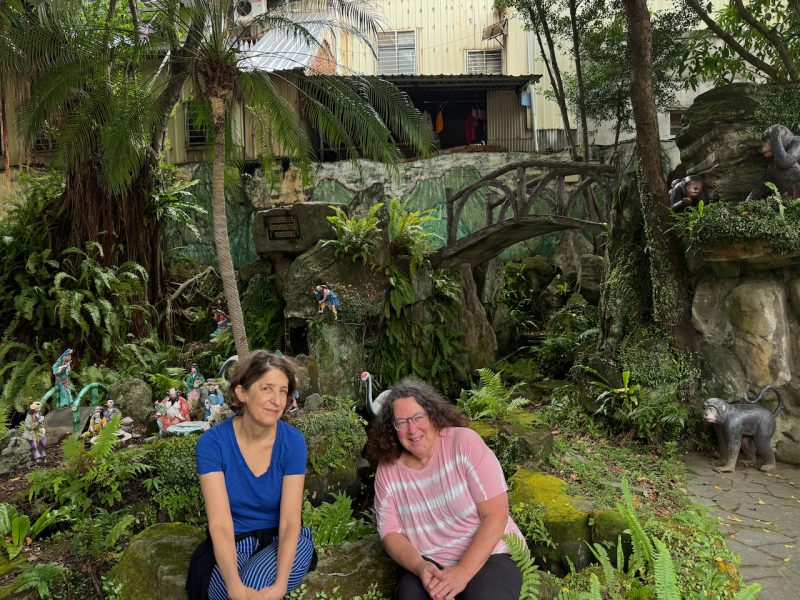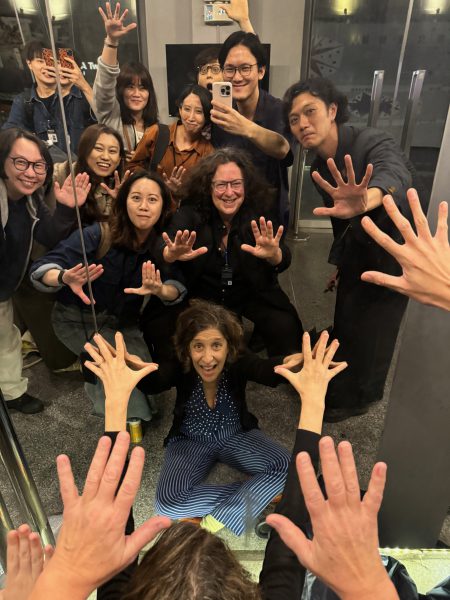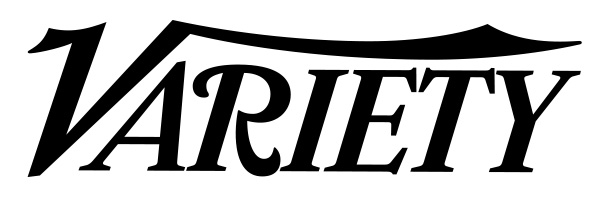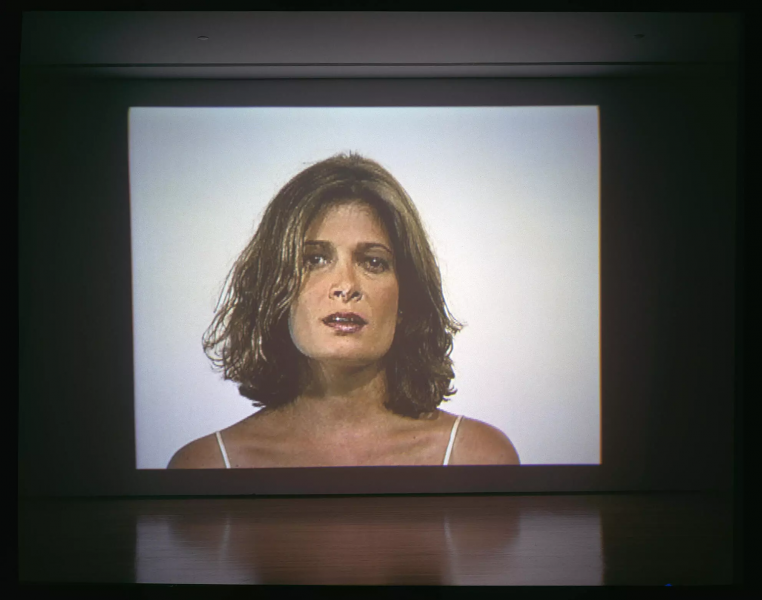
16 of the Year’s Most Acclaimed and Talked About Docs Named to Longlist
Unforgettable Honorees Revealed
Girls State and Ren Faire Top Broadcast Nominations
Annual Shorts List Revealed
Los Angeles, CA, October 24, 2024 — Cinema Eye Honors, the organization that recognizes outstanding artistic achievement in nonfiction and documentary films and series, kicked off its 18th annual celebrations today with its first awards announcements for 2024. Among the announcements were the 16 films on the Audience Choice Prize Longlist, the unveiling of this year’s Unforgettables Honorees, nominees in five Broadcast categories, and the annual Shorts List — spotlighting 11 of the year’s top documentary short films.
Cinema Eye announced its first Honorees of the season, their annual list of the Unforgettables – the on-camera collaborators from eight feature documentaries. The winners include Brian Eno from Gary Hustwit’s Eno, Lhakpa Sherpa from Lucy Walker’s Mountain Queen: The Summits of Lhakpa Sherpa, Chris Smalls from Stephen Maing and Brett Story’s Union and Harper Steele from Josh Greenbaum’s Will & Harper. Filmmakers Shiori Ito (Black Box Diaries) and Basel Adra & Yuval Abraham (No Other Land), who are also onscreen in their films, were also among those named to the list.
For the first time, Unforgettables who attend Cinema Eye’s Awards Ceremony in New York in January will be presented with a special medallion honoring their contribution to their Cinema Eye winning films.
In today’s Broadcast Film and Series announcements, Apple TV+’s Girls State and HBO’s Ren Faire led with three nominations each. Girls State, the follow-up to the Cinema Eye-winning Boys State from filmmakers Amanda McBaine and Jesse Moss, received nominations for Broadcast Film, Broadcast Editing and Broadcast Cinematography. Lance Oppenheim’s Ren Faire was also nominated in Broadcast Editing and Cinematography, along with a nod for Nonfiction Series.
The nomination for Ren Faire was one of two for director Oppenheim, who was also nominated for Hulu’s Spermworld. Filmmaker Dawn Porter, who was recently honored by President Biden with a National Humanities Medal, also received two nominations, in Broadcast Film for Hulu’s The Lady Bird Diaries and in Nonfiction Series for Showtime’s Deadlocked: How America Shaped the Supreme Court.
Other notable nominations in the Broadcast categories include the third Anthology Series nod for HBO’s How To with John Wilson, the first program ever to accomplish that feat. The series, which ended earlier this year with its third season, previously won Cinema Eye Honors for Broadcast Editing for Season One and Anthology Series for Season Two.
Filmmaker Steve James once again claimed the record for the most Cinema Eye nominations in history. He received his 14th nomination this year in the Nonfiction Series category for ESPN’s The Luckiest Guy in the World. Filmmaking team Jimmy Chin and Elizabeth Chai Vasarhelyi scored their 11th and 9th nominations with recognition in the Anthology Series category for National Geographic’s Photographer.
HBO led all networks and streamers with twelve nominations in all. Apple TV+ scored six nominations, while Netflix received five. Other films and series receiving multiple nominations include Netflix’s America’s Sweethearts: The Dallas Cowboy Cheerleaders, Apple TV+’s The Enfield Poltergeist and HBO’s Telemarketers.
In addition to the Broadcast nominations, Cinema Eye also announced this year’s Audience Choice Award Longlist which includes 16 of the year’s most acclaimed and talked about documentaries.
Each year, tens of thousands of nonfiction fans have the opportunity to select the final ten nominees and the ultimate winner.
The last six winners of the Best Documentary Feature Oscar – 20 Days in Mariupol, Navalny, Summer of Soul, My Octopus Teacher, American Factory and Free Solo – were all first nominees for the Audience Choice Prize.
This year’s list includes a number of the most talked about and lauded films of the year, including Copa 71, Daughters, Frida, Grand Theft Hamlet, Piece by Piece, Porcelain War, The Remarkable Life of Ibelin, Skywalkers: A Love Story, Sugarcane and Super/Man: The Christopher Reeve Story.
Finally, Cinema Eye also announced the eleven films on this year’s Shorts List, the organization’s annual list of semi-finalists for its Nonfiction Short Film Honor. Of those eleven films, five or six will be announced as the official nominees. For the second year in a row, Cinema Eye will screen all of the Shorts List films in both Los Angeles and New York, with series of screenings at Vidiots in LA on Sunday, December 7 and in New York at DCTV on Sunday, November 24.
Last year’s Oscar winner for Best Documentary Short, The Last Repair Shop, was one of the films on the 2024 Shorts List.
Cinema Eye will return to the historic New York Academy of Medicine in East Harlem for its 18th Annual Awards Ceremony, to be held on Thursday, January 9, 2025. Cinema Eye Week, which includes a number of events and activities for Cinema Eye nominees and honorees, kicks off on Monday, January 6.
Today’s announcements were made at the 7th Annual Cinema Eye Fall Lunch in Downtown Los Angeles. The event was hosted by Amazon MGM Studios, Apple Original Films, Hulu and Netflix.
A full list of this year’s announcements and nominees follows.
Audience Choice Award Long List
Black Box Diaries
Directed by Shiori Ito
Copa 71
Directed by Rachel Ramsay and James Erskine
Daughters
Directed by Natalie Rae and Angela Patton
Eno
Directed by Gary Hustwit
Frida
Directed by Carla Gutiérrez
Grand Theft Hamlet
Directed by Pinny Grylls and Sam Crane
Mountain Queen: The Summits of Lhakpa Sherpa
Directed by Lucy Walker
No Other Land
Directed by Basel Adra, Hamdan Ballal, Yuval Abraham and Rachel Szor
Piece by Piece
Directed by Morgan Neville
Porcelain War
Directed by Brendan Bellomo and Slava Leontyev
The Remarkable Life of Ibelin
Directed by Benjamin Ree
Secret Mall Apartment
Directed by Jeremy Workman
Skywalkers: A Love Story
Directed by Jeff Zimbalist
Sugarcane
Directed by Julian Brave NoiseCat and Emily Kassie
Super/Man: The Christopher Reeve Story
Directed by Ian Bonhôte, Peter Ettedgui
Will and Harper
Directed by Josh Greenbaum
The Unforgettables Honorees
Shiori Ito
Black Box Diaries
Brian Eno
Eno
Lhakpa Sherpa
Mountain Queen: The Summits of Lhakpa Sherpa
Basel Adra and Yuval Abraham
No Other Land
Patrice Jetter
Patrice: The Movie
Jenna Marvin
Queendom
Chris Smalls
Union
Harper Steele
Will and Harper
Broadcast Film Nominees
Bread & Roses
Directed by Sahra Mani
Apple TV+
Girls State
Directed by Amanda McBaine and Jesse Moss
Apple TV+
Great Photo, Lovely Life: Facing a Family’s Secrets
Directed by Amanda Mustard and Rachel Beth Anderson
HBO
The Lady Bird Diaries
Directed by Dawn Porter
Hulu
Slave Play. Not a Movie. A Play.
Directed by Jeremy O. Harris
HBO
Spermworld
Directed by Lance Oppenheim
FX
Nonfiction Series Nominees
America’s Sweethearts: Dallas Cowboy Cheerleaders
Directed by Greg Whiteley and Chelsea Yarnell
Netflix
Deadlocked: How America Shaped the Supreme Court
Directed by Dawn Porter
Showtime
The Enfield Poltergeist
Directed by Jerry Rothwell
Apple TV+
The Luckiest Guy in the World
Directed by Steve James
ESPN
Ren Faire
Directed by Lance Oppenheim
HBO
Telemarketers
Directed by Adam Bhala Lough and Sam Lipman-Stern
HBO
Anthology Series Nominees
Conan O’Brien Must Go
Executive Producers Conan O’Brien, Jeff Ross
HBO
De La Calle
Executive Producers Nick Barili, Jared Andrukanis, Picky Talarico, Lydia Tenaglia, Christopher Collins, Amanda Culkowski, Bruce Gillmer, Craig H. Shepherd
Paramount+
God Save Texas
Executive Producers Lawrence Wright, Alex Gibney, Richard Linklater, Peter Berg, Michael Lombardo, Elizabeth Rogers, Stacey Offman, Richard Perello, Nancy Abraham, Lisa Heller
HBO
High on the Hog Season 2
Executive Producers Roger Ross Williams, Geoff Martz, Craig Piligian, Sarba Das, Fabienne Toback, Karis Jagger, Jessica B. Harris, Stephen Satterfield, Michele Barnwell
Netflix
How To with John Wilson Season 3
Executive Producers Nathan Fielder, John Wilson, Michael Koman, Clark Reinking
HBO
Photographer
Executive Producers Elizabeth Chai Vasarhely, Jimmy Chin, Pagan Harleman, Betsy Forhan
National Geographic
Broadcast Editing Nominees
Girls State
Edited by Amy Foote
Apple TV+
The Greatest Night in Pop
Edited by Nic Zimmerman, Will Znidaric, David Brodie
Netflix
Ren Faire
Edited by Max Allman, Nicholas Nazmi
HBO
The Saint of Second Chances
Edited by Alan Lowe, Jeff Malmberg, Miles Wilkerson
Netflix
Telemarketers
Edited by Christopher Passig
HBO
Time Bomb Y2K
Edited by Marley McDonald, Maya Mumma
HBO
Broadcast Cinematography Nominees
America’s Sweethearts: Dallas Cowboy Cheerleaders
Director of Photography Jonathan Nicholas
Netflix
The Enfield Poltergeist
Director of Photography Ruben Woodin Deschamps, Carmen Pellon Brussosa, David Katznelson
Apple TV+
Girls State
Director of Photography – Nominees to be Determined
Apple TV+
Photographer
Director of Photography Michael Crommett, Rita Baghdadi, Peter Hutchens, Melissa Langer, Pauline Maroun
National Geographic
Ren Faire
Director of Photography Nate Hurtsellers
HBO
You Were My First Boyfriend
Director of Photography Brennan Vance, J. Bennett
HBO
Shorts List Semifinalists
Contractions
Directed by Lynne Sachs / NY Times Op-Docs
Eternal Father
Directed by Ömer Sami / New Yorker
I Am Ready, Warden
Directed by Smriti Mundhra / MTV Documentary Films
Incident
Directed by Bill Morrison / New Yorker
Instruments of a Beating Heart
Directed by Ema Ryan Yamazaki / NY Times Op-Docs
Love in the Time of Migration
Directed by Erin Semine Kökdil and Chelsea Abbas / LA Times
Makayla’s Voice: A Letter to the World
Directed by Julio Palacio / Netflix
The Medallion
Directed by Ruth Hunduma / New Yorker
A Move
Directed by Elahe Esmaili / NY Times Op-Docs
The Only Girl in the Orchestra
Directed by Molly O’Brien / Netflix
A Swim Lesson
Directed by Rashida Jones and Will McCormack / POV



